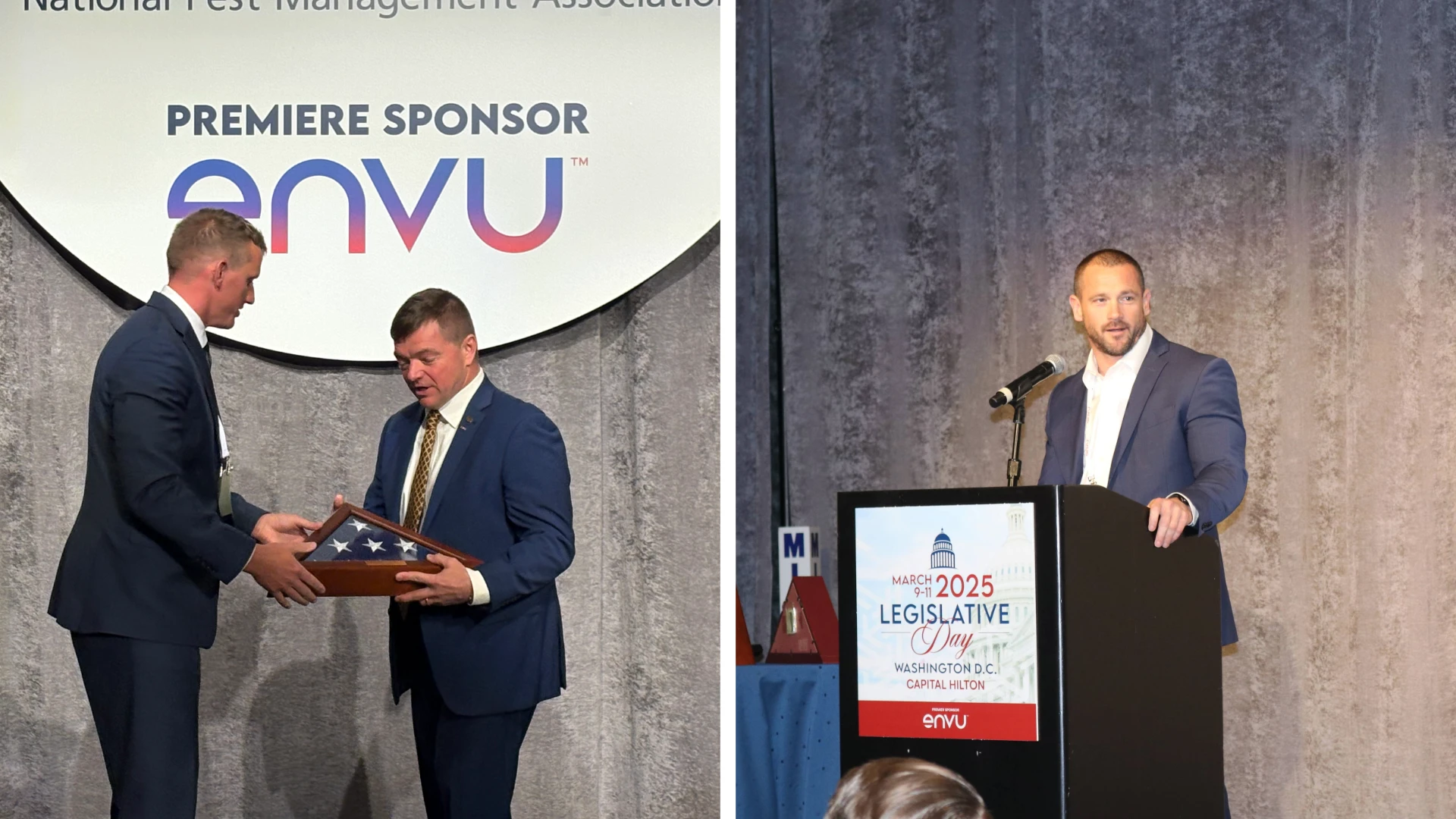In a year that could have been a disaster, the termite market presented a surprisingly strong showing.
Many pest control professionals said the swarm season was, if not a blockbuster, at least better than last year’s. Others benefitted from the recent pickup in the housing market, since they received more requests for inspections. And there were some who found termites in places they didn’t expect, while others expected to find more termites but didn’t.
So goes the story of this complicated market that is typically affected by a host of factors, not the least of which is weather. Other key determinants are activity in the real estate market, new construction, whether consumers were finding termites, and how much income they were willing to part with to control them. And in 2009, all of these factors came into play.
A BETTER YEAR. To find out more about how PCOs fared across the country, PCT magazine conducted industry surveys earlier this year that included a number of questions covering the termite market. PCT also interviewed a sampling of PCOs and distributors across the country to get a better idea of what was happening in the termite market.
The results of the surveys and interviews showed many PCOs actually fared well this year, either finding the swarm season to be surprisingly better than previous years, or encountering other economic anomalies that drove their business.
When asked about the quality of this spring’s termite swarm season, about half said it was below average. Meanwhile about 16 percent said the season was excellent or above average, while 33 percent characterized it as average.
Interestingly, however, even though most said the swarm season was average or worse, the majority — 76 percent — said it was either much better than last year, marginally better or about the same. Only about a quarter described it as worse than last year. More good news is that about 68 percent of respondents said this spring their termite revenues have either grown or remained flat, while just under a third said they declined.
Another unique situation for PCOs this year was how the housing market and local economy played a role. According to PCT’s June survey, the majority of respondents — about 59 percent — characterized the housing market in their area as below average or very weak. (See related story on page 16.) Furthermore, about half said the slowing housing market nationally had affected their business in a negative way. But throughout the summer, real estate transfer activity began to pick up in many areas, to the benefit of PCOs asked to do inspections. Interestingly, many transfers were largely driven by the unbelievably low prices on properties in those markets. Another factor, many PCOs observed, was likely the $8,000 first-time homebuyers tax credit offered this year.
One business sector that continued to suffer significantly across the board was, not surprisingly, the pretreat market. The glut of existing homes on the market led to a continued standstill in new construction this year, particularly throughout the South where pretreats are done more frequently. John Bolanos, vice president for Univar’s professional products and services division, noted “pretreat products are still fairly depressed as a result of the lack of building going on.”
SECOND-QUARTER PICKUP. According to Chris Donaghy, president of distributor Residex, termite business across the country varied by region, depending on such factors as weather, housing and sectors of the business served. The distributor serves small to mid-sized PCOs from Maine to Virginia, and in Florida.
“In the Northeast,” said Donaghy, “the majority of our customers indicated that they had a better than normal swarm season.” However, he added, “normal” for those business owners would be defined as having virtually no consistent swarm over the past five years.
“This year seemed to linger a lot longer and when they did get swarms they were bigger swarms,” Donaghy said. Furthermore he added, pest control companies were receiving leads. “Quite a few companies had a backlog of business.”
However, Donaghy noted the slow housing market also had a dampening effect on the otherwise good market. Most PCOs in the Northeast found business to be largely flat or slightly up, he said, “and that’s because of the decrease in turnover in existing homes,” he explained. “They’re still not getting the opportunity to sell termite jobs off of real estate transactions which drives a good percentage of their business on average.”
Donaghy described a less rosy business picture in Florida, where vacant houses on the marketplace and a bruised economy meant a drop in business for PCOs, even though the swarm season there was better than normal. But Donaghy said he expected business to grow when those houses are reoccupied. “When the market starts to come back, those houses in Florida are going to be a gold mine of opportunity for the PMPs in the state of Florida,” Donaghy said. “They’re going to be running with not only termites but probably every other pest known to the pest control industry.” But he added, companies will have to wait it out. “It’ll come back and it’ll be an opportunity but it’s whether or not you as a business can wait until better days return or are you going to do something to diversify.”
Meanwhile Bolanos said the termite market has been essentially flat or even depressed in 2009 after a “bleak” first quarter and a “nice pickup” in the second in some of the traditional termite sectors including Florida, the Southeast, Southern California, Nevada, Arizona and Texas.
The second quarter pickup, he explained, reflected a bit of improving economic conditions as well as favorable weather for termite activity. “We are seeing some spurts of some new activity,” said Bolanos. “There is some real estate transaction activity taking place especially in existing home sales.”
Further, Bolanos said in the first quarter PCOs appeared to have a “hunker-down mentality,” wanting to use up inventory. “Once the warm weather picked up we started to see some nice purchasing activity,” he added.
MORE INSPECTIONS. Likewise, a few PCOs seemed to experience that pickup in real estate-driven termite work. Jerry Schappert, owner of The Bug Doctor, based in Ocala, Fla., has been surprised by the amount of termite business he’s received this year. He serves a five-county area in north-central Florida.
“It was more than I expected,” Schappert says, noting the business has declined in previous years. “The swarms weren’t there but I’ve been finding live termites.”
Schappert said he believes one main reason for the increase in termite business is his requests for inspections have increased in the last several months. This year he has received a large number of inspections requested by real estate agents on repossessed properties. And, he says, these often lead to termite treatments since he is finding termites in about a third of these properties.
Similarly Bert Putterman, president of Oliver Exterminating Corp., parent company of Arizona Exterminating Co. in Arizona, Guarantee Floridian Pest Control in South Florida, and Oliver Exterminating of Puerto Rico and the Dominican Republic, says the decline of the housing market in his service areas ultimately has led to increasing business for his company.
“In the last two years the building market and the real estate market collapsed in the state of Arizona and that sort of brought to a head the decline in termite work out here,” Putterman said. However, through reorienting its sales efforts, the company’s termite work has since increased.
“In the first half of ‘09 the real estate market has picked up again in Arizona due to short sales and foreclosures,” Putterman said. In fact, he explained, this summer the company’s real estate inspections were up to levels last seen in 2006. With property values now down by as much as 60 percent, Putterman said, buying activity is rampant.
“It’s good news for me but for home-owners themselves, they’re taking an unholy beating in Arizona right now, in the Phoenix and Tucson markets in particular,” Putterman said, referring to the “grossly smaller” home values many sellers have had to contend with. Of the inspections that Putterman’s company performs, he says about one in six will need some sort of treatment.
“We have had significant growth this year,” observed Putterman. “The reason for it doesn’t warm your heart though.”
Putterman notes his company is proactive when it comes to sales. “We do a lot of work with the short-sale brokers,” Putterman said. “Part of our sales strategy is to develop relationships with realty companies that are doing that short sales work.” But, Putterman adds, “we don’t count on that for our business. A couple of years ago that market went away completely.”
Jerry Martin, vice president of Martin Exterminating Co., based in Tobaccoville, N.C., also has seen growth this year. Martin described the termite swarm as probably the best in the last five years. The company serves the triad area of Winston-Salem, Greensboro and High Point, N.C. Martin said his real estate inspections have at least tripled from last year, and notes his company is on a preferred provider list used by some 500 Realtors in his area.
Martin attributes some of the real estate activity to the $8,000 first-time homebuyers tax credit. “Right now it’s booming,” Martin said. “I’m doing probably 12 to 15 inspections a week from real estate sales now.”
Similarly, Norman Connolly, owner of Connolly Pest Management, Mesa, Ariz., sees the tax credit sending termite business his way. Connolly serves the Phoenix metro area and said his termite business was up this year. “We are starting to see an increase in inspections of homes for sale by owner,” he said, as opposed to the banks. “I am projecting that next year when the tax credit falls off, the business will drop,” he said.
ECONOMIC BACKLASH. In the absence of real estate-driven termite business, many PCOs are reporting a lackluster year, with consumers more reluctant to spend money on termite control services.
Carl E. Brown Sr., president and owner of Cobra Exterminating Company, located in Cordele, Ga., said termite activity in his area was slow, as has been the housing market. Brown also said his renewals were down slightly.
A key factor for Cobra is that WDI inspections are no longer mandated by the state of Georgia in real estate transfers, “so our inspection business has pretty much gone by the wayside,” said Brown.
Like Brown, a number of PCOs said renewals have taken a hit this year. For instance, Putterman noted, “We are losing a significant piece of our renewal income to empty houses.” But instead of giving up on these accounts, Putterman keeps them on the books and follows monthly real estate transactions to stay abreast of ownership changes.
Meanwhile, Andy McAngus, owner of Noble Resources Pest Control, based in Richardson, Texas, said people often don’t seem to have the money for termite control this year. He says termite business was flat, likely due to the economy.
“We think the termites have to be out there,” McAngus said. He says some customers hold off on treatments even after termites have been found in their homes.
Furthermore, McAngus said the housing market has been “terrible” in his area with high numbers of foreclosures and not many inspections. “We’re seeing a lot more spot treatments than full treatments,” McAngus said. Although he always quotes a full treatment, McAngus says many times, residential consumers say the money is not there. “As opposed to walking away we’ll offer to spot-treat the area where we know the termite activity is showing,” he said. And sometimes, he adds, the spot treatment seems to take care of the problem. “It seems like with the bad economy people are just trying to get by with what they absolutely have to,” McAngus said.
Similarly, Connolly said there is evidence the poor economy is affecting how people buy termite services, with some opting for partial treatments or looking for creative financing options. “We are seeing more being put on credit cards,” Connolly said. Furthermore he has noticed an increase in service requests around the holidays that he attributes to Christmas bonuses being paid out then. And Connolly says, there is plenty of price shopping going on when it comes to termite service.
PROTECTED IN THE MIDWEST. Meanwhile, PCOs in the Midwest seemed to be shielded from the extreme effects of the housing market. Roland Rhodes, president of Rhodes Chemical Co., Kansas City, Kansas, said termite business was down but not nearly as much in the Midwest as in the South. One explanation: pretreats are not required in the Midwest. Furthermore, the housing market was in better shape. “In this part of the country they didn’t overbuild,” said Rhodes. “There’s not near the inventory of houses waiting to be bought.” The company serves PCOs located in the northern Midwest.
Likewise, Jeff Cochran, co-owner of Bosch Pest Control, headquartered in Muscatine, Iowa, says termite business has been good and consumers are buying. He serves eastern Iowa and western Illinois along the Mississippi River.
“We’re seeing more colonies,” he said. “I think termites are more active this year than the past few years.” Cochran said his inspection business also has been up this year, with many houses being bought and sold. “We take calls on a daily basis to do real estate inspections,” he said.
“I think we’re already seeing maybe a five- to ten-percent increase in termite work,” Cochran observed.
And Toni Markey, co-owner of the Orkin Pest Control franchise located in Beulah, Mich., has been downright surprised by termites this year. Markey’s franchise serves Northern Michigan and the eastern Upper Peninsula.
“There is a huge misnomer that (termites) are not found north of Grand Rapids,” said Markey. She’s proven that false this year when the business received many swarm calls, ultimately leading to a “2,000 percent increase” in termite work. “It was bizarre,” she said. It was the first time since 1997 that she has witnessed a swarm season. As one explanation, Markey said the area experienced optimum swarm conditions this spring: a lot of snow and rain followed by a brief stint of hot humid weather in May. Most of the company’s termite calls, Markey added, came from remodeling jobs where termites were uncovered.
PROMISING DAYS AHEAD. Of course there were pest management professionals who reported having more traditional success with both active termites and consumers. Bob Nichols, owner of Guardian Pest Control in Fort Walton Beach, Fla., said termite business has been up by about 10 percent. The company serves northwest Florida. “We haven’t had a tremendous amount of swarms but we’ve had a few more than years past,” Nichols said. He noted the high incidence of Formosan termites in the area have kept people on their toes when it comes to termite control. “They take about half the time to do damage, and when they do damage it is 10- to 20-fold over the eastern subterranean termite,” Nichols. “The word is getting around that you better have your house protected for termites,” he added.
Meanwhile, Schappert said more homeowners were finding live termites, perhaps in the midst of remodeling projects, and then calling the Bug Doctor for termite treatments. “When I get out there, people are ready to buy,” he said. And, oddly enough, he said, “people have been getting preventative jobs.”
In addition, some of Schappert’s business has come from consumers in need of termite protection on their homes when the five-year contract on their pretreat expires and the company that held it is looking to sell them a new contract. “They end up calling someone like myself,” says Schappert, explaining he often charges considerably less for a treatment and renewable guarantee.
But the best news for pest management professionals is, with the housing crisis already bottoming out, there’s presumably no place to go but up. That was a sentiment apparently shared by many who answered PCT’s survey: Close to 40 percent said they anticipate 2009 termite business to grow. Bolanos, for one, said he was cautiously optimistic that 2009 would end up a better year than 2008. Schappert is another who expects to post gains for the 2009 season. “This year has put a little more faith in me for the termite season,” said Schappert, “because it has been above average.”

Explore the October 2009 Issue
Check out more from this issue and find your next story to read.
Latest from Pest Control Technology
- Understanding Rodents and Bird Flu
- Green Pest Solutions Awards Safest Driver New 2025 Ford F150
- UF/IFAS Sheds Light on Tiny Invaders During Termite Awareness Week
- Registration Open for Lawn & Landscape Technology Conference
- Fleetio Launches Automotive Service Excellence Scholarship
- WorkWave Appoints John Phelan as CTO
- PMPs Use Capitol Hill Visits to Push for Preemption
- 20 Trapping Tips





